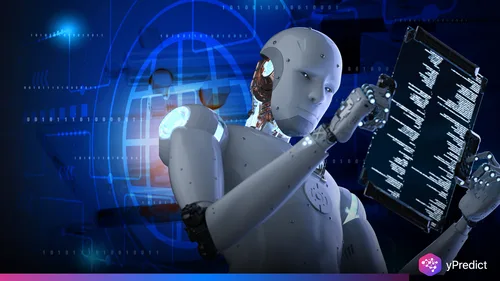
Artificial intelligence has reached a point where it no longer feels like a supporting tool, but a complete research partner. From brainstorming to structured insights, AI research tools are capable of doing what entire research teams once handled. This shift is transforming industries, academic fields, and even personal learning.
But what does research truly mean? A skilled researcher goes far beyond gathering data. They explore subjects deeply, break them into essential elements, and present insights clearly. That same process, once thought too human for machines, is now being replicated by advanced large language models like ChatGPT, Gemini, Claude, and DeepSeek.
The result is faster output, reduced costs, and unmatched scale. With the right guidance, anyone can use these tools to explore complex topics and deliver well-structured knowledge. The value is no longer limited to professional researchers, it is open to every curious mind.
What Makes a Great Researcher in Any Field?
At its core, research is not about memorizing facts. A great researcher does three things exceptionally well.
- They understand broad topics with depth, connecting details to a larger context.
- They break down complex subjects into key, manageable components.
- They deliver insights in a structured, clear, and actionable way.
For centuries, this skillset required years of practice and intellectual discipline. Now, artificial intelligence research systems can mimic the same process with remarkable accuracy.
How AI Research Tools Replicate Human-Like Understanding
The strength of AI research tools lies in their training. They are built on enormous datasets that allow them to recognize patterns across disciplines. When prompted, they simulate understanding by generating insights that mirror human reasoning.
These systems can quickly scan across domains, linking economics with technology, history with politics, or science with ethics. Unlike traditional research methods, which demand weeks of manual effort, AI systems compress this process into minutes.
The key is not just speed, but depth. By structuring knowledge in layers, AI provides both overviews and detailed insights, helping users navigate from a macro to a micro level effortlessly.
Breaking Down Complex Subjects with AI
One of the most challenging parts of research is distilling complex topics down to their base parts. AI allows researchers to make this crucial step easier by providing the topic in direct, logical components. As an example, if you were to ask an AI system to define climate change, it would decompose the definition into the following axes, all of which are logically distinct but related to climate change in the context of a globe, country or region: causes, impacts, solutions, and case studies.
Because of this structured deconstruction, using AI is particularly valuable for researchers in a professional setting. Corporations can examine market disruptions and compile insights from various industries. Scientists can do thorough academic reviews of pertinent studies and student learners can importantly learn the distinctions in complex theories without feeling inundated with segments of information that connect like a jigsaw puzzle rather than a whole.
By putting knowledge into sections and hirarchically arranged items, AI systems can assist not only in sorting factual information, but also in the digestability of its insights.
Delivering Clear and Structured Insights
Research is pointless if the insights are disorganized. AI is really good at presenting. Reports, short articles, outlines, bullet points – they produce content that we can organize for you.
That has clear value in corporate decision-making, education, and journalism. Rather than spending the next several weeks writing the report, people can now build an outline in a matter of hours. The structure and clarity of the insights are undoubtedly a contributing factor in why AI research tools are quickly becoming essential in every sector.
Why AI Research Tools Outperform Traditional Methods
Traditional research is slow, costly, and often limited by human bandwidth. While human expertise remains valuable, the advantages of AI are undeniable.
- Speed: AI delivers in minutes what would take humans weeks.
- Cost-effectiveness: No need for large research teams or expensive outsourcing.
- Scalability: AI can handle multiple projects simultaneously without losing accuracy.
This is not just about efficiency. It is about opening research access to anyone, regardless of resources.
The Human-AI Collaboration in Research
While AI is powerful, human judgment is still important. Machines deliver organized information, but it is up to people to decide what information is meaningful. The best outcomes happen when AI for researcher is integrated with human judgment to develop insights. While records legal abilities give stronger, more useful insights, professionals manage the entire process, refine outputs, and provide context.
Providing this type of hedge ensures research will remain credible, ethical, and respond to real needs. The future of research does not create humans as less valuable, but uses AI to extend the capabilities of humans.
Final Thoughts on the Future of Research with AI
The emergence of AI-based research assistants indicates a major change in knowledge work, and its ability to provide broad understanding and structured knowledge signals it has captured the essence of what makes research great.
As more and more people adopt this new capability, it will be increasingly difficult to determine when professional research and everyday inquiry begins and ends. AI will bring research capabilities to business, education, and individuals alike, and we will use AI to inquire, analyze, and communicate.
The question is no longer whether AI can replace a research team. The question is how we choose to use this capability to expand the human understanding.






